History
Foundation of the town
Kolín was founded by so-called relocation, i.e. moving the original trading settlement with the same name (today Starý Kolín) from the place endangered by frequent floods of the Labe to a more suitable place on the rock above the river. The exact date of the foundation is not known. Přemysl Otakar II issued a document which ordered the Kolin inhabitants to fortify the town and it also meant tax and charges relief. The copy of the document dates back to 26th October, however, the year is missing. The first dated reference mentioning Kolín is a document from 8th September 1261. By this document, Přemysl Otakar II gave the same rights and freedom to the town of Přelouč (Kolín and Kouřim had already had these rights before). Therefore it is sure that Kolín was already a functional royal town before.
The town was founded at the place of an older settlement, which is proved by numerous archaeological discoveries. The town was based on regular street ground plan which has been kept to the present. In old records, the town is called in Latin Colonia Nova ad Albim (New Kolín upon Labe, Nový Kolín nad Labem) or Civitas Colonia (Town Kolín, město Kolín) or in German Koln uf der Elbe. The most likely explanation of the Czech name Kolín comes from the idea that the name was taken from the original settlement which was located in the area which was often flooded and the banks were fixed by wooden stakes (Czech ʺkůlʺ = stake).
The construction of an early Gothic church of St. Bartholomew (Svatý Bartoloměj) began soon after the foundation of the town on an elevated place; the construction was finished before 1300.
At first, Kolín was a royal mining town which participated in silver mining in the area situated south-east of the town. Kolín was in conflict with the town of Čáslav because of these discovery sites. In 1291 the town of Kutná Hora was founded at the place of a mining village.
Kings from the Přemyslid dynasty (Přemysl Otakar II and Václav II) granted the town a lot of privileges and rights. The first extant privilege dates back to 24th May 1285. By this privilege, king Václav II promised to protect Kolín inhabitants from nobility and ordered that the disagreements between citizens and nobility should be judged only by the king himself.
Kolín citizens, as citizens of a royal town, were not governed by either secular or religious authorities. The people were governed by the king who was represented by a royal bailiff appointed (and chosen from important town men) by the king. The town was governed by a group of twelve aldermen who were appointed by a vice-chamberlain for the period of one year and they changed after each month acting as burgomaster (the head of town council). The bailiff had a typist who was also the town lawyer, he prepared deeds, made records of council meetings and took care of town books. Except for the town administration, the bailiff and the aldermen had also the jurisdiction over the town and its surrounding (so-called town ʺflapʺ).
Luxemburg Era
When the Přemyslid dynasty died out (1306), Roman-German king Albrecht I tried to conquer the town in 1307, however, the town led by Jaroslav of Žerotín (Jaroslav ze Žerotína) resisted successfully. In autumn 1310, a new Czech king Jan Luxemburg (Jan Lucemburský) came to the town and he demanded opening the gates and he also requested the coronation in St. Bartholomew Cathedral. The aldermen refused to let him in threatened by the punishment from the still reigning king Jindřich of Korutany. After conquering Prague in December 1310, the king punished Kolín by withdrawing the economically important right of goods storing and he granted this right to Nymburk. However, after discussion with the citizens, the king restored the right on 31st December. The king also promised not to put the city in pledge and he also awarded the town with annual market on St. Bartholomew Day.
Jan Luxemburg granted the town four privileges, his son Charles IV (Karel IV.) even fourteen. In 1363 the king ordered all merchants who floated wood on the Labe to stop for a fortnight and sell wood exclusively to Kolín citizens and miners from Kutná Hora (so-called right of wood storage).
In 1349 St. Bartholomew cathedral burnt down. In 1360 architect Petr Parléř started the reconstruction after the impulse from Charles IV.
In 1381 Václav IV awarded Kolín the execution right and in 1391 the important mile right which ensured that no other pub or workshop could be in the distance of one mile. The granted privileges ensured the town prosperity and supported its growth both inside the castle walls and in the outskirts – Čáslavké (Horské), Kouřimské and Klášterské (Pražské) outskirt. In 1410 Sedlec Monastery sold Mnichovice village to Kolín. This village was situated on the right bank of the Labe where the new outskirt called Zálabí was founded.
In 1402 Hungarian king Zikmund led his army to Kutná Hora and the army plundered vast areas including Kolín outskirts. In 1413 Kolín was set on destructive fire.
Hussite revolution
After the death of Václav IV and the outburst of Hussite revolution in 1419, the town councillors (especially Germans) supported new king Zikmund. In 1421 the town voluntarily surrendered to the Hussites, it was after the defeat of Zikmund in battle at Vítkov. Afterwards the king was driven out of the country. The town was influenced by alarming messages about Hussite movement, plundering of neighbouring villages and fear of revenge. Hussites spared the town, however, they burnt Dominican monastery and they also burnt to death the monks together with dean of Kolín Hynek of Ronov (Hynek z Ronova) in front of the Kouřim gate (Kouřimská brána). By a document dated 7th May 1421, Kolín citizens refused Zikmund as their king and they declared four Prague articles and they swore allegiance to the grail.
Some German families moved out of the town because of fear of Hussites. Czech craftsmen of middle class got to town council and other positions. Strengthening Czech was reflected in town books which were from this time written in Czech – before they were written in Latin or German. German influence remarkably decreased, however, after decrease of revolutionary mood in 1423, the Germans started to negotiate with Prague citizens against Jan Žižka. In 1427 they became powerful again and Kolín supported feudal union under their leadership. The town was conquered by the Taborits in December and Prague people led by Prokop Holý drove the remaining Germans out and they vested power in the Hussites led by Jan Čapek of Sány. This caused increase of using Czech in the town which kept supporting Taborites till the end of the Hussite revolution.
After the defeat in battle at Lipany on 30th May 1434, Jan Čapek arrived at Kolín with the rests of his troops, he was followed by the winning army of feudal union. However, there was no more fight, both parties made an agreement and Čapek surrendered to future country government.
Images







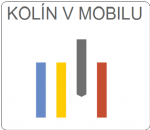


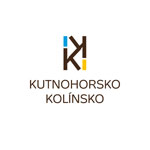

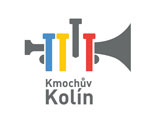


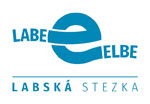
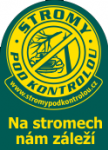








 Máte zájem dostávat nejnovější zprávy přímo do vaší e-mailové schránky?
Máte zájem dostávat nejnovější zprávy přímo do vaší e-mailové schránky?